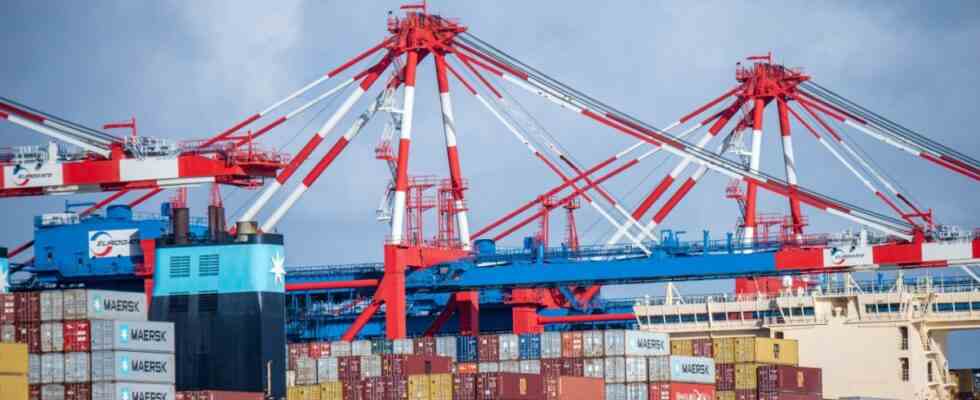High energy prices and lower consumption are slowing down the German economy. Surprisingly, the gross domestic product still grew weakly between July and September – it increased by 0.3 percent. The next few months are likely to be much more difficult. “The big hammer is coming in winter,” warns Sebastian Dullien from the Institute for Macroeconomics (IMK).
Opposing factors have had an impact on the economy in recent months. In this way, some supply bottlenecks were resolved so that car manufacturers and machine builders were able to work off their high order backlog. Another positive factor was that sectors such as travel and gastronomy benefited from the fact that people are leaving the house more again after the corona restrictions. At the same time, the sharp price increases for energy and food made themselves felt. This applies both to energy-intensive industries such as chemicals and to consumers: “People are feeling the rise in prices and are holding back on their consumption,” reports Torsten Schmidt from the RWI Institute in Essen.
Now there are small signs of relaxation given the current high level of inflation. According to a survey by the Munich Ifo Institute, fewer companies are planning to raise their prices in the near future. And on the futures market, gas costs only half as much as in September, which helps some companies. But gas is still three times as expensive as last year after the Russian attack on Ukraine and the delivery stops. And the price trend on the futures market is of no help to consumers for the time being.
“The burden on households even increases in winter because the suppliers generally only pass on energy prices to private customers with a delay,” says RWI economics boss Torsten Schmidt. Like other economists, he expects inflation to be in the double digits at the beginning of the year – and that economic output will be hit hard.
IMK Director Sebastian Dullien sees it the same way. This year’s wholesale energy price hikes would not really hit consumers until October-January. “Many people live very much according to what income they have and what they have to spend. We assume that consumers will consume less over the winter because of the high prices.” And so the companies do significantly less business.
The job market is still stable
This is the main reason why the economy will shrink by 0.4 percent in 2023 as a whole, according to leading economic institutes. It would be the first minus since the severe Corona crisis in 2020. And it would be a setback because economic output – and thus the income of Germans – is only slowly recovering from this Corona crisis.
On the other hand, it is important to see the proportions. If it stays at minus 0.4 percent, that would be many times less than in the Corona crisis. There are some factors that work positively. For one thing, the job market is stable. “Although the economy is shrinking, companies are keeping their people because of the shortage of skilled workers,” says Torsten Schmidt. “That limits the crisis.” Because if many citizens were to become unemployed, a lot of income would be lost and consumption would fall even more.
The fact that many employees can expect wage increases or one-off payments next year is also having a positive effect on consumption. And that the federal government will take over the down payment for gas in December – and from March onwards the gas price brake should limit people’s costs. If the brake comes in January, as demanded by some politicians, that would strengthen consumption – and thus the economy – even more.
However, an economic recovery is not expected until spring, if inflation then slowly decreases as expected. The institutes then only expect economic growth of two percent for 2024.
However, with these hopes there is a but: If the winter gets very cold, then the situation becomes much more difficult. The colder the winter gets, the more difficult it becomes to save 20 percent of the usual gas consumption as planned. But if there is a gas shortage and many companies can no longer produce, the German economy will crash as badly as in the Corona crisis – or even worse.

